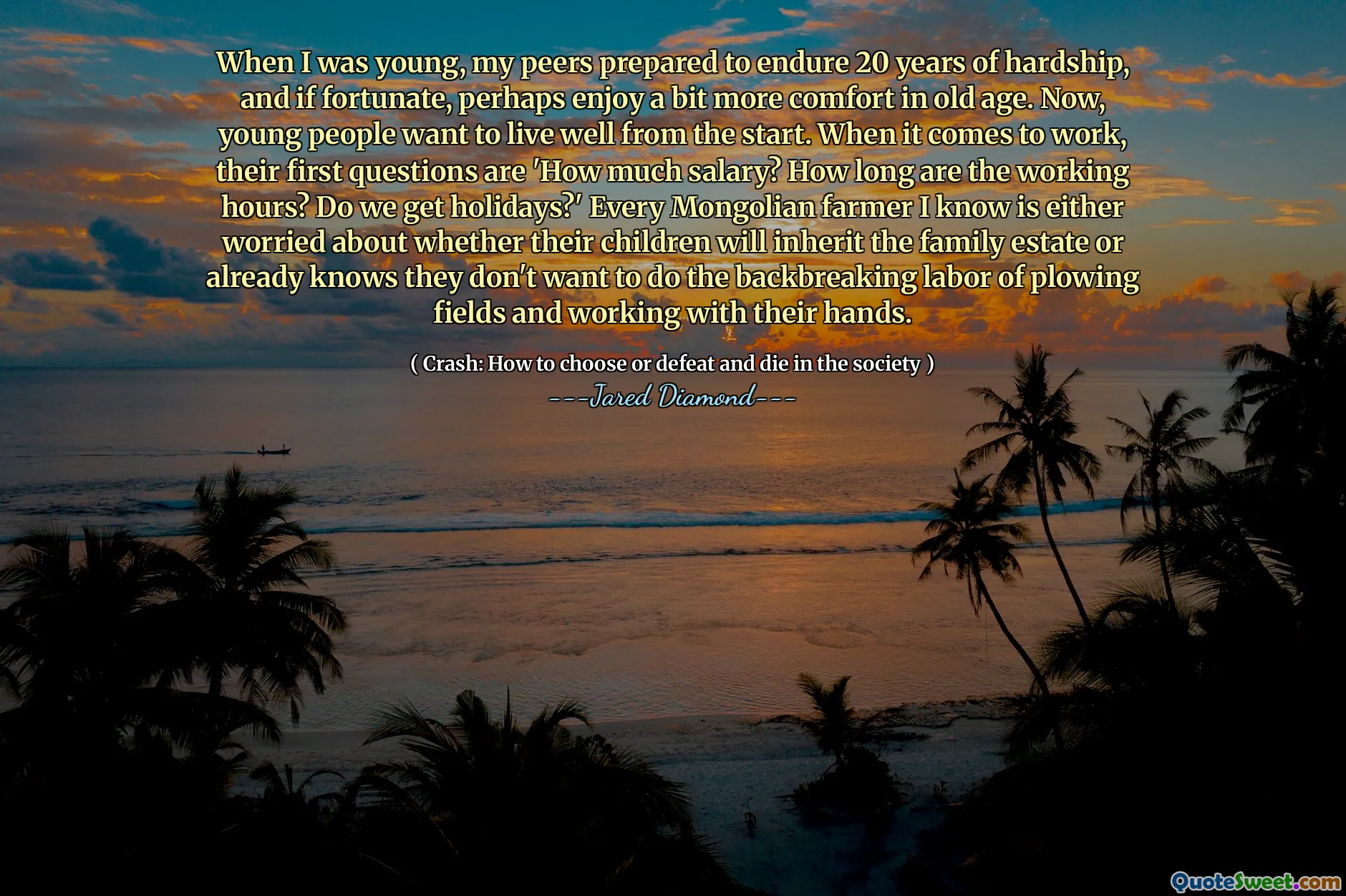
When I was young, my peers prepared to endure 20 years of hardship, and if fortunate, perhaps enjoy a bit more comfort in old age. Now, young people want to live well from the start. When it comes to work, their first questions are 'How much salary? How long are the working hours? Do we get holidays?' Every Mongolian farmer I know is either worried about whether their children will inherit the family estate or already knows they don't want to do the backbreaking labor of plowing fields and working with their hands.
This quote offers a poignant contrast between the attitudes and expectations of older and younger generations regarding work, hardship, and the pursuit of happiness. Historically, many individuals accepted a life of toil and sacrifice, perceiving hard work as a necessary path to stability and eventual comfort. The older generation reflects a mindset shaped by economic hardship, limited social mobility, and cultural values that prioritized perseverance and endurance. In contrast, the younger generation, influenced by changing socio-economic conditions, education, and global perspectives, appears to prioritize immediate benefits such as salary, reasonable working hours, and leisure time. This shift signifies not only a change in economic realities but also a transformation in aspirations and life priorities. The mention of Mongolian farmers highlights a disconnect between traditional lifestyles rooted in agricultural toil and contemporary desires for a different quality of life, perhaps driven by urbanization and modernization. It raises critical questions about societal development: Are we moving towards a society that values work-life balance? Or are we risking a future where careers are chosen based on comfort rather than purpose or legacy? There is also an underlying concern about the sustainability of such philosophies and the economic implications for communities that have relied historically on agrarian lifestyles. The quote invites reflection on how generations define success, happiness, and societal contribution, urging us to consider whether the pursuit of comfort might sometimes come at the expense of resilience and hard-earned virtues from the past.






